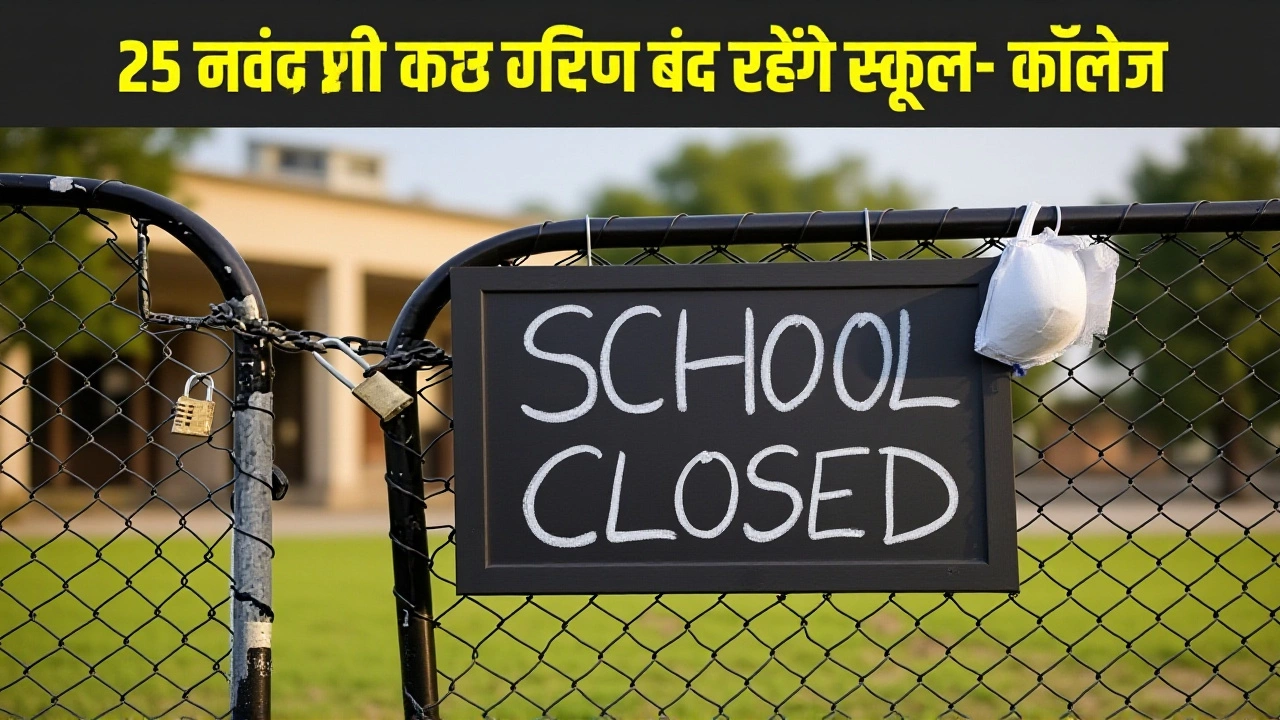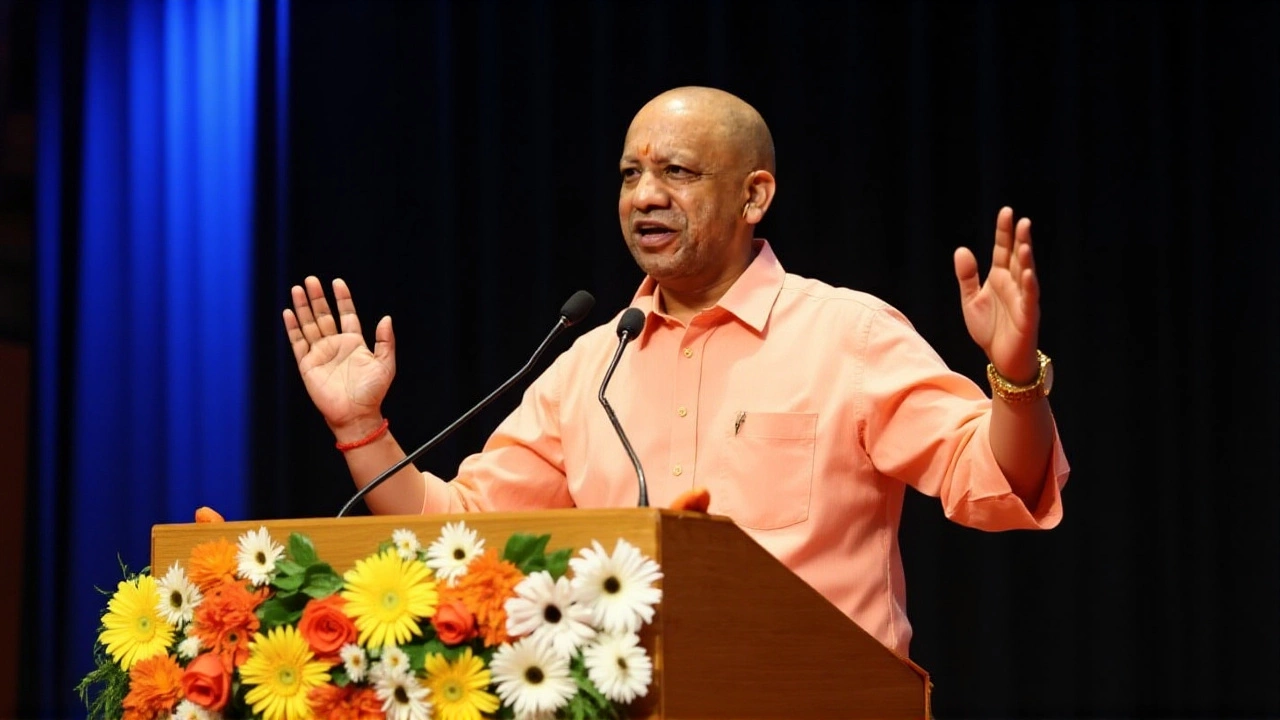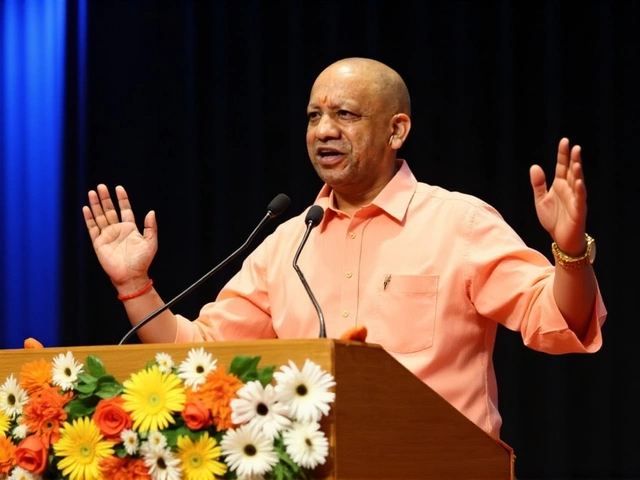When the Uttar Pradesh government announced it was moving the public holiday for Guru Tegh Bahadur Martyrdom Day from November 24 to November 25, 2025, it wasn’t just a calendar tweak—it was a quiet but powerful statement. The order, issued by Manish Chauhan, Principal Secretary (Home) on Sunday, November 23, 2025, overrides years of precedent and reshapes how millions in the state observe one of Sikhism’s most solemn anniversaries. For the first time in decades, the holiday won’t fall on the actual date of the martyrdom—November 24—but on the next day, Tuesday, November 25. Why? Because this year, 2025, marks the 350th anniversary of the ninth Sikh Guru’s sacrifice, and the state wants to ensure the day is marked with full dignity, not rushed between workdays.
Why the Date Changed
Traditionally, states across India, including Uttar Pradesh, have observed Guru Tegh Bahadur’s martyrdom on November 24—the exact date in 1675 when he was executed in Delhi under the orders of Mughal Emperor Aurangzeb for refusing to convert to Islam. He stood for religious freedom, famously sacrificing his life to protect Kashmiri Pandits from forced conversion. But this year, the Uttar Pradesh government decided the solemnity of the 350th anniversary demanded more than a single day squeezed between a weekend and a workday. November 24 is a Monday this year. If the holiday had stayed on the 24th, workers and students would have had only one day off—no long weekend. By shifting it to Tuesday, November 25, the government ensured the day could be observed without disruption.
But there’s more beneath the surface. The same day—November 25—is also when Prime Minister Narendra Modi will perform the flag-hoisting ceremony in Ayodhya, a momentous event tied to the Ram Mandir’s consecration. The Uttar Pradesh government had already begun heavy security preparations for Modi’s visit, with Chief Minister Yogi Adityanath personally inspecting arrangements just days before the holiday announcement. Combining the national significance of the flag-hoisting with the spiritual weight of Guru Tegh Bahadur’s anniversary was, for officials, a strategic act of symbolic unity.
What This Means for People
Every government office, school, college, and private educational institution in Uttar Pradesh will shut down on November 25. That’s over 30 million students, 1.2 million teachers, and 5 million state employees affected. The decision, while welcomed by many in the Sikh community, has sparked confusion among others. Some families had already planned trips or events around the idea of a three-day weekend (November 23–25). Now, they’ll have just one day off. “We were looking forward to a short getaway,” said Priya Singh, a schoolteacher in Kanpur. “Now it’s just one day. But I understand—it’s not about convenience. It’s about respect.”
The shift also means Sikh gurdwaras across the state—especially in Lucknow, Varanasi, and Mathura—will see unprecedented crowds. The Shiromani Gurdwara Parbandhak Committee has coordinated with state authorities to ensure free langar services, processions, and kirtan programs run smoothly. “This isn’t just a holiday,” said Harpreet Kaur, a volunteer at the Gurdwara Sri Guru Tegh Bahadur Sahib in Prayagraj. “It’s a reminder that courage isn’t measured in years, but in convictions.”

How Other States Are Responding
Uttar Pradesh isn’t alone in rethinking its observance. Uttarakhand has kept the holiday on November 24, sticking to tradition. Delhi and Haryana have both aligned with Uttar Pradesh, declaring November 25 as a holiday—but with a critical difference. In Haryana, it’s labeled a “restricted holiday,” meaning essential services like hospitals and police remain operational. In Delhi, it’s a full public holiday, mirroring Uttar Pradesh’s approach.
This patchwork of decisions reflects a deeper tension: Should religious observances strictly follow historical dates, or should they adapt to modern realities? The Uttar Pradesh government clearly chose the latter. Their reasoning? “The 350th anniversary deserves more than a footnote in the calendar,” said an anonymous senior official familiar with the deliberations. “We’re not changing history. We’re honoring it better.”
The Bigger Picture: Symbolism and Statecraft
This isn’t just about holidays. It’s about how modern India negotiates its plural identity. Guru Tegh Bahadur’s martyrdom is a unifying narrative—his sacrifice protected not just Sikhs, but Hindus, Muslims, and others who faced religious coercion. In a country where religious holidays are often politicized, this move feels different. It’s not about favoring one community. It’s about elevating a shared value: the right to believe freely.
By tying the holiday to Modi’s Ayodhya visit, the state has woven together two powerful threads: one of faith, the other of national pride. The timing is no accident. The Ram Mandir’s inauguration in 2024 was a landmark moment for Hindu identity. Now, by honoring a Muslim-era martyr who defended religious liberty, the government signals that India’s identity isn’t monolithic—it’s layered, complex, and inclusive. It’s a quiet rebuttal to those who say the state is narrowing its cultural vision.

What’s Next?
Will other states follow Uttar Pradesh’s lead? Possibly. The 350th anniversary is a once-in-a-lifetime moment, and the emotional resonance is high. In the coming years, the November 25 date may become the new norm—not because history changed, but because how we remember it did. Meanwhile, the state has ordered all departments to update their calendars immediately. Schools have been instructed to hold special assemblies. The Uttar Pradesh State Education Board has released a 10-page guide for teachers on Guru Tegh Bahadur’s life and legacy.
On November 25, the air in Lucknow will carry the sound of kirtan. In Ayodhya, saffron flags will fly beside the Nishan Sahib. Two different rituals. One message: liberty is worth dying for.
Frequently Asked Questions
Why did Uttar Pradesh move the holiday from November 24 to November 25?
The change was made to honor the 350th anniversary of Guru Tegh Bahadur’s martyrdom with greater solemnity. November 24, 2025, is a Monday, and shifting the holiday to Tuesday, November 25, ensures the day can be observed without disrupting the workweek. It also aligns with Prime Minister Narendra Modi’s flag-hoisting ceremony in Ayodhya on the same day, allowing coordinated state support and public participation.
Is November 25 the actual date of Guru Tegh Bahadur’s martyrdom?
No. Guru Tegh Bahadur was executed on November 24, 1675, in Delhi’s Chandni Chowk. The November 25 holiday is a symbolic adjustment by the Uttar Pradesh government to better accommodate observance and align with the 350th anniversary’s national significance. The actual historical date remains November 24, but the state has chosen to mark the occasion on the following day for practical and ceremonial reasons.
How does this affect students and government employees?
All government offices, schools, colleges, and private educational institutions across Uttar Pradesh will be closed on November 25, 2025. This impacts over 30 million students and 6 million public sector workers. While some families lost the prospect of a long weekend, the state argues the single day allows for full participation in religious ceremonies, community langars, and educational programs without work conflicts.
Why did Delhi and Haryana also shift their holidays to November 25?
Both Delhi and Haryana aligned with Uttar Pradesh to coincide with the 350th anniversary and PM Modi’s Ayodhya event. Delhi declared a full public holiday, while Haryana classified it as a “restricted holiday,” meaning essential services remain open. This reflects a growing trend among northern states to treat the anniversary as a moment of national reverence, not just a religious observance.
What was Guru Tegh Bahadur’s significance in Indian history?
The ninth Sikh Guru, Guru Tegh Bahadur, was executed in 1675 for refusing to convert to Islam under Mughal Emperor Aurangzeb. He famously stood up for the religious rights of Kashmiri Pandits, who were being forced to convert. His martyrdom became a defining moment for religious freedom in India, transcending Sikhism to become a symbol of resistance against oppression. He is revered across faiths as a champion of conscience.
Is this change controversial?
There’s some debate. Traditionalists argue the holiday should remain on the exact historical date. But most Sikh leaders and community members have welcomed the move, seeing it as a gesture of respect during a milestone anniversary. The government’s alignment with a national event like the Ayodhya flag-hoisting has also helped frame the decision as inclusive rather than partisan.

